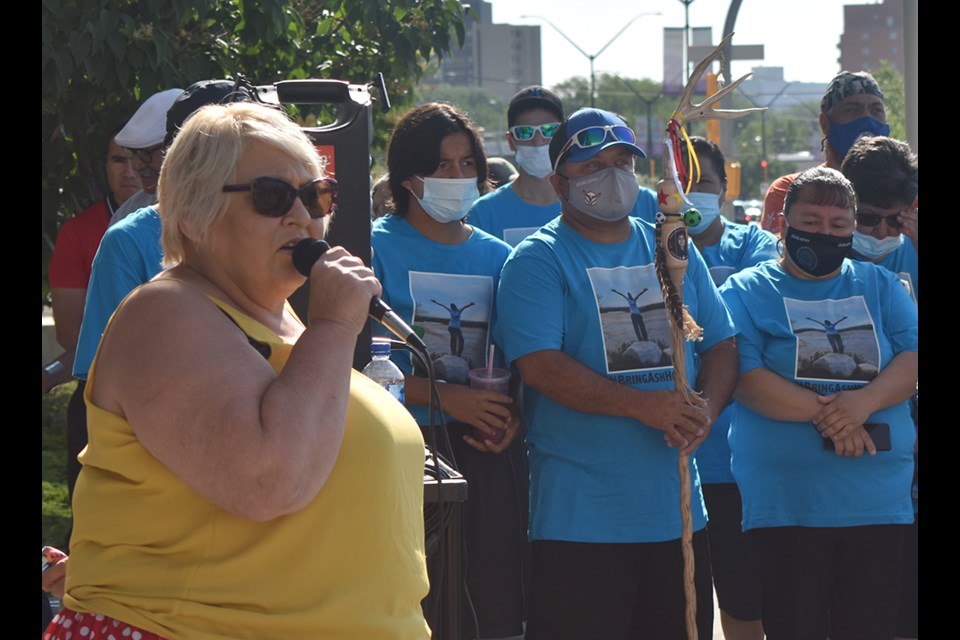Federation of Sovereign Indigenous Nations Vice Chief Heather Bear said over the weekend that the cases of Ashley Morin, Megan Gallagher and other missing Indigenous women are more than just a number since they have families and friends that have been waiting for any news of their whereabouts and are longing for their presence.
Bear said the past two months have been tough to bear for Indigenous peoples with the discovery of remains of children in residential schools in the provinces of British Columbia and Saskatchewan.
“With the unfolding of the residential schools, the little souls that were taken. They weren’t missing, they were taken. And it pains me that it has taken almost 150 years for things to come to light, but I believe that through these visuals that we continue to weigh the conscience of perpetrators. This is about justice. This is about equality. And change is happening,” said Bear, who is a member of the Ochapowace First Nation in the province.
“A lot of our women have been at this for a long time and I know in recent years, the different tones from our police chiefs. The assistance that I get when someone is missing. There’s change. Change has been hard. We have the perpetrators out there. Whoever knows something, we plead with you to come forward and let your soul, your conscience to rest. The ones who are missed and murdered, they have families and they’re loved. They’re human beings, they’re not just numbers.”
She added that the cases of Missing and Murdered Indigenous Women and the children who suffered and died in residential schools are part of a harsh reality.
“There are still some people that want to hurt us [Indigenous peoples] out there. That’s the reality, but it’s my prayer that with the uncovering of these children that were taken away, that awareness is coming. It’s a harsh truth and it’s a harsh reality.”
FSIN Justice and Special Investigations Unit Director Jason Stonechild said what has been happening the past few months has not been easy, not only for the Indigenous community but also for the non-Indigenous as well.
“There’s a lot of issues at hand that are divided in the community and to everybody who are trying to raise awareness for their lost loved ones. Our executive leadership at FSIN are in every community event as mush as they could. I’m very honoured to work for such leaders who care so much about community issues.”
The former Prince Albert Deputy Police Chief added that in his previous work that he would talk to the families who have missing loved ones. “I worked with families who were suffering. When I spoke to them, they were talking about false hopes.”
“They would talk about community contacts who would give them tips constantly. They would always talk about, trying to imagine, what happened to their lost loved ones. Always searching with frustrations. Imagine how they lived through on a daily basis.”




